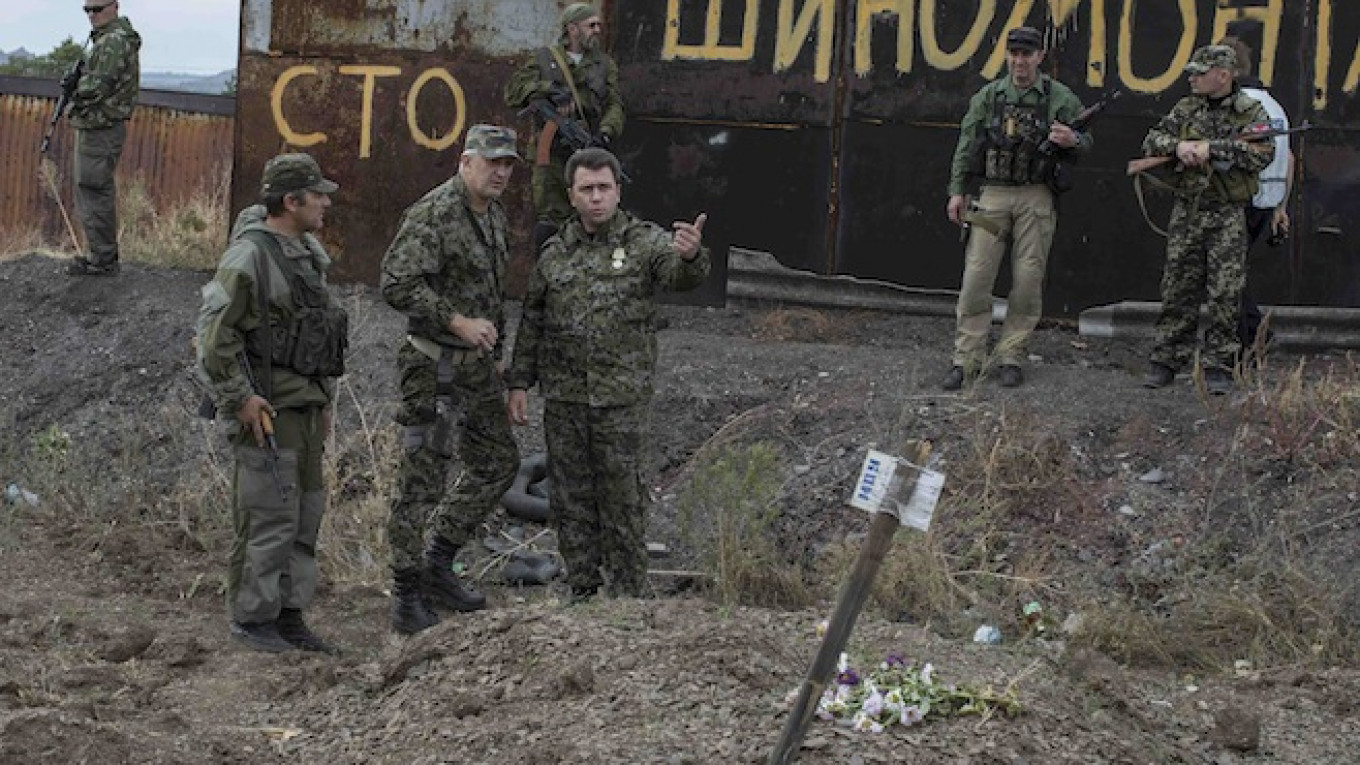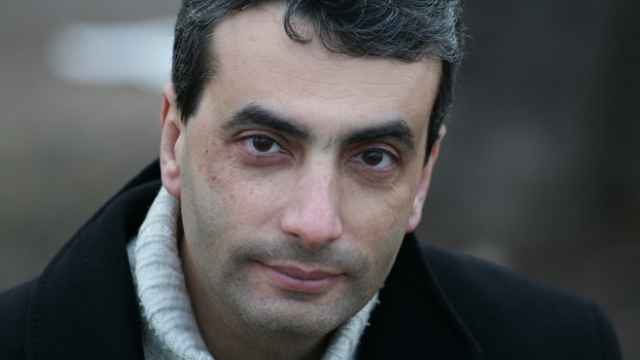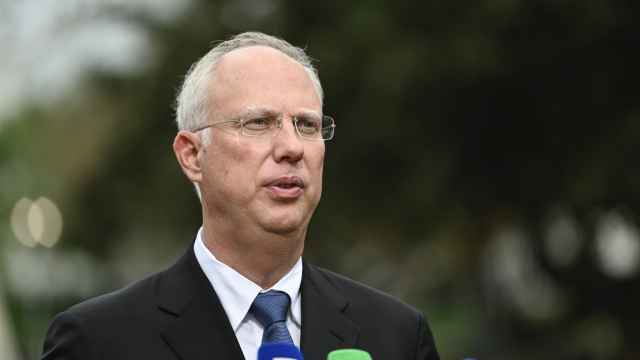An opposition lawmaker who inquired about the reported deaths of Russian paratroopers in Ukraine has been told by the Defense Ministry that the accounts are “rumors” and that releasing information about military casualties would violate privacy laws.
State Duma lawmaker Dmitry Gudkov — one of the few critics of President Vladimir Putin's administration to remain in parliament — asked the Defense Ministry last month for information on whether Russian troops were fighting in Ukraine, the number active or past servicemen who had been killed in the conflict, and the military affiliation of three dozen men whom he identified by name.
The names on Gudkov's list — 39 of them in all — included soldiers who were buried last month in the western Russian city of Pskov and which disappeared from grave markings after a local lawmaker and journalists started asking questions.
The ministry's response, which Gudkov published on his LiveJournal social network page Monday, gave little information on any of those issues.
"Your request regarding rumors concerning the activities of Russian servicemen on the territory of Ukraine … has been reviewed," the letter signed by Deputy Defense Minister Nikolai Pankov said.
"Despite repeated accusations by a range of Ukrainian and Western politicians, quoted by foreign media, the Russian Federation is not a party in the conflict between the government forces of Ukraine and the residents of the Donetsk and Luhansk regions who disagree with the policies of the country's leadership."
As for the men whose names Gudkov cited, "releasing information on citizens listed in the request is considered impossible based on the requirements of the Russian federal law of 2006 'On Personal Data,'" the response said.
Gudkov argued the ministry's unwillingness to go into specifics indicated a wish to hide a possible Russian military involvement in Ukraine.
"If the servicemen listed above in my letter had nothing to do with the tragic events in Ukraine, would [the ministry] respond to me along the lines of 'Don't tell me what to do, and I won't tell you where to go'?" he wrote in his LiveJournal post.
"Would they take cover behind the law on the protection of personal data?" he said, adding "by the way, I did not ask them about personal data."
The deaths of Russian paratroopers from the Pskov-based 76th Airborne Division have been shrouded in mystery ever since they were buried in August.
Pskov regional lawmaker Lev Shlosberg, who spearheaded the investigation into the servicemen's deaths, was hospitalized with head injuries and a broken nose after being beaten by three unidentified assailants on a street late last month.
Scores of Russian journalists asking questions in Pskov have also reported being attacked by unidentified assailants, while a BBC news crew looking into reports that Russian soldiers had been killed near Ukraine's border were beaten and had their camera smashed in the southern Russian city of Astrakhan earlier this month.
According to one human rights advocate, the secretive burials in Pskov were not a one-off.
Yelena Vasilyeva, who tracks and compiles reports about alleged Russian military casualties in Ukraine, said on her website that the bodies of more than a dozen other servicemen were brought last week to a military morgue in the southern city of Orenburg.
Vasilyeva also published a copy of a military order, discharging the servicemen from the army after they had already been killed, she said. Vasilyeva said that the order was handed to her by military officers "outraged" by the army's handling of its casualties.
Meanwhile, opposition leader Boris Nemtsov on Monday published an appeal to Russian servicemen who may be deployed to Ukraine, saying "Putin, as commander in chief, knows perfectly well that the participation of the armed forces in military activity in the east of Ukraine is illegal."
"That's why you are serving without insignia … That's why he is lying that you lost your way and ended up in the Donetsk and Luhansk region," Nemtsov wrote in the appeal, published on the Ekho Moskvy website. "Putin and your commanders will disown you in a second, saying that they had not sent you to war, and your families will never find the truth if something were to happen to you."
Requests for information on servicemen's deaths have also come from a number of other Russian activists, including the Pskov lawmaker Shlosberg and human rights ombudswoman Ella Pamfilova, who last month gave military prosecutors 30 days to answer her request. The deadline came and went on Sunday, though Pamfilova did not receive a response, Ekho Moskvy reported.
The Pskov-based 76th Airborne Division, which last month received the Order of Suvorov from President Vladimir Putin, was awarded in honor of its long history of military glory, including its participation in various "local conflicts" during previous decades, the Defense Ministry said, in response to Gudkov's question.
Contact the author at newsreporter@imedia.ru
A Message from The Moscow Times:
Dear readers,
We are facing unprecedented challenges. Russia's Prosecutor General's Office has designated The Moscow Times as an "undesirable" organization, criminalizing our work and putting our staff at risk of prosecution. This follows our earlier unjust labeling as a "foreign agent."
These actions are direct attempts to silence independent journalism in Russia. The authorities claim our work "discredits the decisions of the Russian leadership." We see things differently: we strive to provide accurate, unbiased reporting on Russia.
We, the journalists of The Moscow Times, refuse to be silenced. But to continue our work, we need your help.
Your support, no matter how small, makes a world of difference. If you can, please support us monthly starting from just $2. It's quick to set up, and every contribution makes a significant impact.
By supporting The Moscow Times, you're defending open, independent journalism in the face of repression. Thank you for standing with us.
Remind me later.






